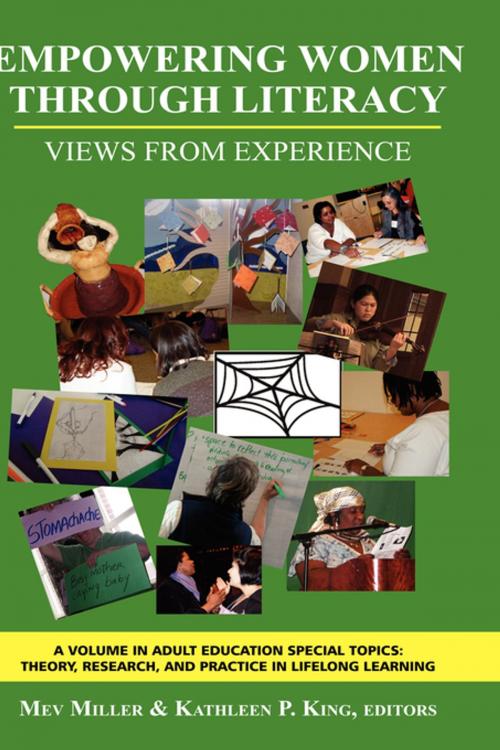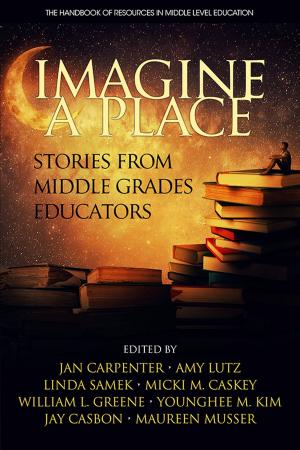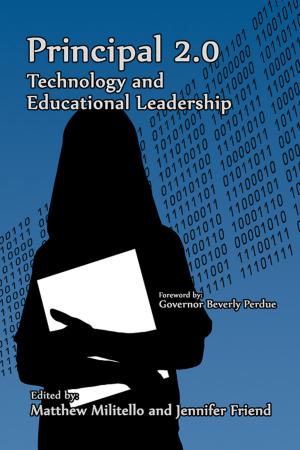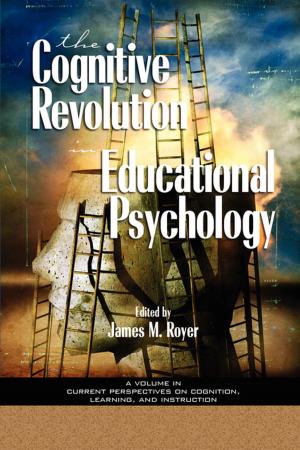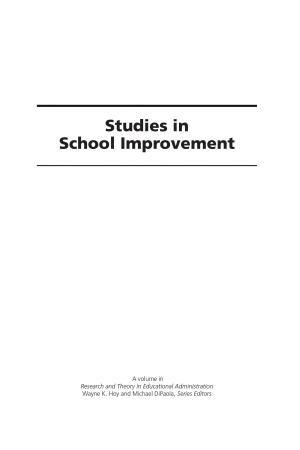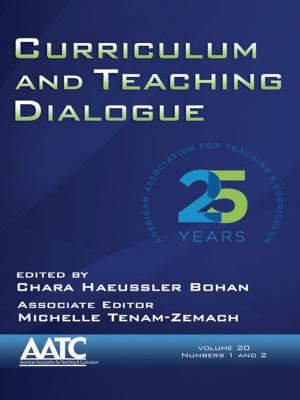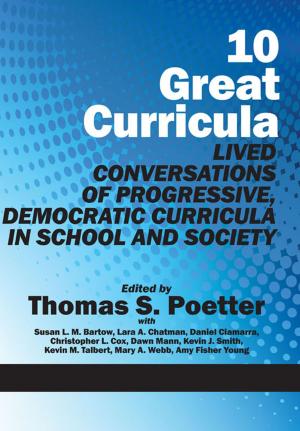Empowering Women Through Literacy
Views from Experience
Nonfiction, Reference & Language, Language Arts, Literacy, Education & Teaching, Higher Education| Author: | ISBN: | 9781607528609 | |
| Publisher: | Information Age Publishing | Publication: | February 1, 2009 |
| Imprint: | Information Age Publishing | Language: | English |
| Author: | |
| ISBN: | 9781607528609 |
| Publisher: | Information Age Publishing |
| Publication: | February 1, 2009 |
| Imprint: | Information Age Publishing |
| Language: | English |
This unique volume of writings by educators in the field working with women's literacy reveals the many ways in which addressing women's empowerment through literacy continues to impact lives. Not only are teachers and learners in adult basic education (ABE), literacy and English language learning (ELL) classes affected, but also those who value and support women’s learning and equity, and education for social change. Revelations More than half of the 3.6 million students in adult basic/literacy education (ABE) programs across the U.S. are women (Sticht, 2001). Research outlines many barriers for women pursuing basic education and literacy, and recommends using womanpositive approaches (Sheared, 1994). However, there exists little research on how educational systems and policies, instructional materials, and pedagogical practices best support the literacy and educational achievement of women literacy learners. Writings and curriculum by individual educators outline and describe innovative activities/ programs focused specifically on the needs of women learners (Cuban & Hayes, 1996; Hayes & Flannery, 2000; Miller & Alexander, 2004; Young & Padilla, 1990). In recent years, educators have been developing innovative curriculum to address such issues as trauma and violence (e.g., Take on the Challenge), workreadiness (e.g. Ready for Work), or women's issues in general (Making Connection). New Directions Empowering Women through Literacy: Voices from Experience is the first comprehensive collection of writing from the field by everyday educators who experience the joys and challenges, creativity and barriers to acknowledge or integrate innovative solutions to support women's learning needs in adult basic education and literacy settings. Mirroring the power of communitybased and grassroots organizations, this volume has had a remarkable history. It has emerged from five years of work by WE LEARN (Women Expanding Literacy Education Action Resource Network) to address the needs of literacy educators and students alike through the organization. The vibrant collective of the WE LEARN network provides consistent visibility for women’s literacy issues, creates connections among educators and activists, supports selfefficacy among learners, encourages new research relevant to women in ABE, and develops and distributes womenfocused literacy materials and curriculum resources. It continues to be the only national U.S. organization directly addressing issues of adult women's literacy and the educational needs of women in ABE. We know you will enjoy this volume that provides an opportunity to hear from 47 contributors from around the world who reflect on their experiences with critical topics of adult literacy practices; how to empower women through literacy and current research based practice. From Belize to Australia, Brazil to Germany, and USA to Turkey, the voices of women engaged in empowerment are awaiting you through these pages. Literacy can change lives, how can we better reach those who desire this empowerment? Join us we explore the breadth of vision and knowledge captured within this groundbreaking volume. The Editors: Dr. Mev Miller and Dr. Kathleen P. King are coeditors of this volume within the Adult Education Series of Information Age Publishing. Mev Miller is the founder and director of WE LEARN, headquartered in Cranston, RI (www.litwomen.org). Kathy King is a professor of adult education at Fordham University’s Graduate School of Education in New York City. They and 45 other contributors join together in this volume to celebrate the unheralded capacity of literacy’s empowerment in women’s lives.
This unique volume of writings by educators in the field working with women's literacy reveals the many ways in which addressing women's empowerment through literacy continues to impact lives. Not only are teachers and learners in adult basic education (ABE), literacy and English language learning (ELL) classes affected, but also those who value and support women’s learning and equity, and education for social change. Revelations More than half of the 3.6 million students in adult basic/literacy education (ABE) programs across the U.S. are women (Sticht, 2001). Research outlines many barriers for women pursuing basic education and literacy, and recommends using womanpositive approaches (Sheared, 1994). However, there exists little research on how educational systems and policies, instructional materials, and pedagogical practices best support the literacy and educational achievement of women literacy learners. Writings and curriculum by individual educators outline and describe innovative activities/ programs focused specifically on the needs of women learners (Cuban & Hayes, 1996; Hayes & Flannery, 2000; Miller & Alexander, 2004; Young & Padilla, 1990). In recent years, educators have been developing innovative curriculum to address such issues as trauma and violence (e.g., Take on the Challenge), workreadiness (e.g. Ready for Work), or women's issues in general (Making Connection). New Directions Empowering Women through Literacy: Voices from Experience is the first comprehensive collection of writing from the field by everyday educators who experience the joys and challenges, creativity and barriers to acknowledge or integrate innovative solutions to support women's learning needs in adult basic education and literacy settings. Mirroring the power of communitybased and grassroots organizations, this volume has had a remarkable history. It has emerged from five years of work by WE LEARN (Women Expanding Literacy Education Action Resource Network) to address the needs of literacy educators and students alike through the organization. The vibrant collective of the WE LEARN network provides consistent visibility for women’s literacy issues, creates connections among educators and activists, supports selfefficacy among learners, encourages new research relevant to women in ABE, and develops and distributes womenfocused literacy materials and curriculum resources. It continues to be the only national U.S. organization directly addressing issues of adult women's literacy and the educational needs of women in ABE. We know you will enjoy this volume that provides an opportunity to hear from 47 contributors from around the world who reflect on their experiences with critical topics of adult literacy practices; how to empower women through literacy and current research based practice. From Belize to Australia, Brazil to Germany, and USA to Turkey, the voices of women engaged in empowerment are awaiting you through these pages. Literacy can change lives, how can we better reach those who desire this empowerment? Join us we explore the breadth of vision and knowledge captured within this groundbreaking volume. The Editors: Dr. Mev Miller and Dr. Kathleen P. King are coeditors of this volume within the Adult Education Series of Information Age Publishing. Mev Miller is the founder and director of WE LEARN, headquartered in Cranston, RI (www.litwomen.org). Kathy King is a professor of adult education at Fordham University’s Graduate School of Education in New York City. They and 45 other contributors join together in this volume to celebrate the unheralded capacity of literacy’s empowerment in women’s lives.
